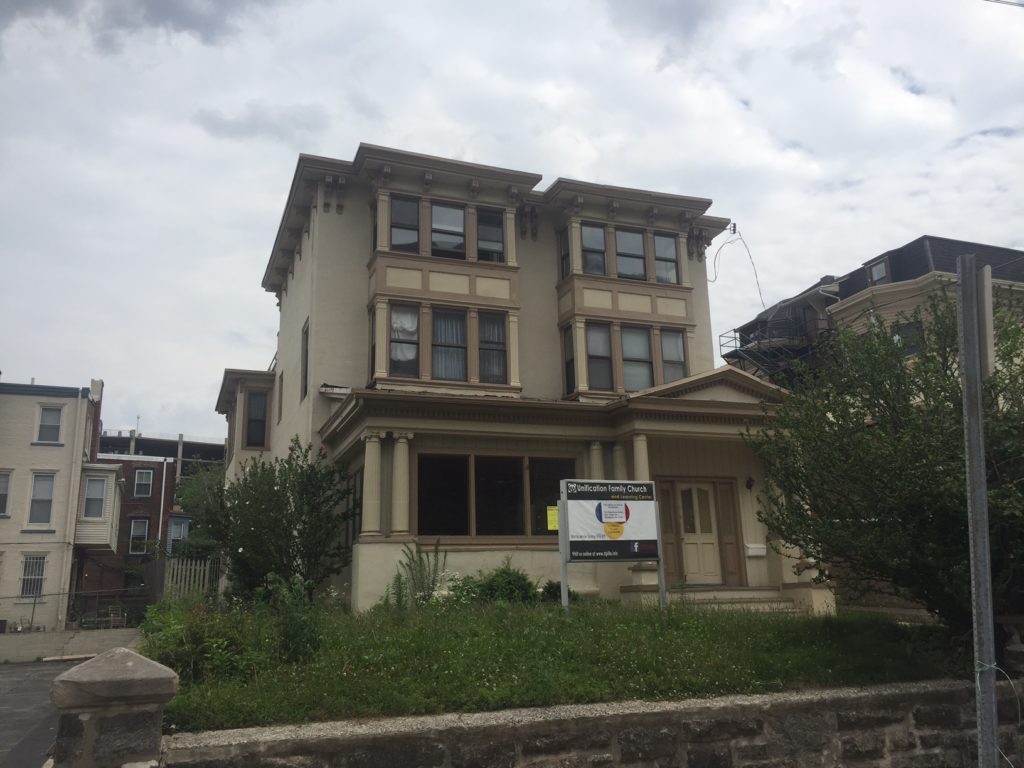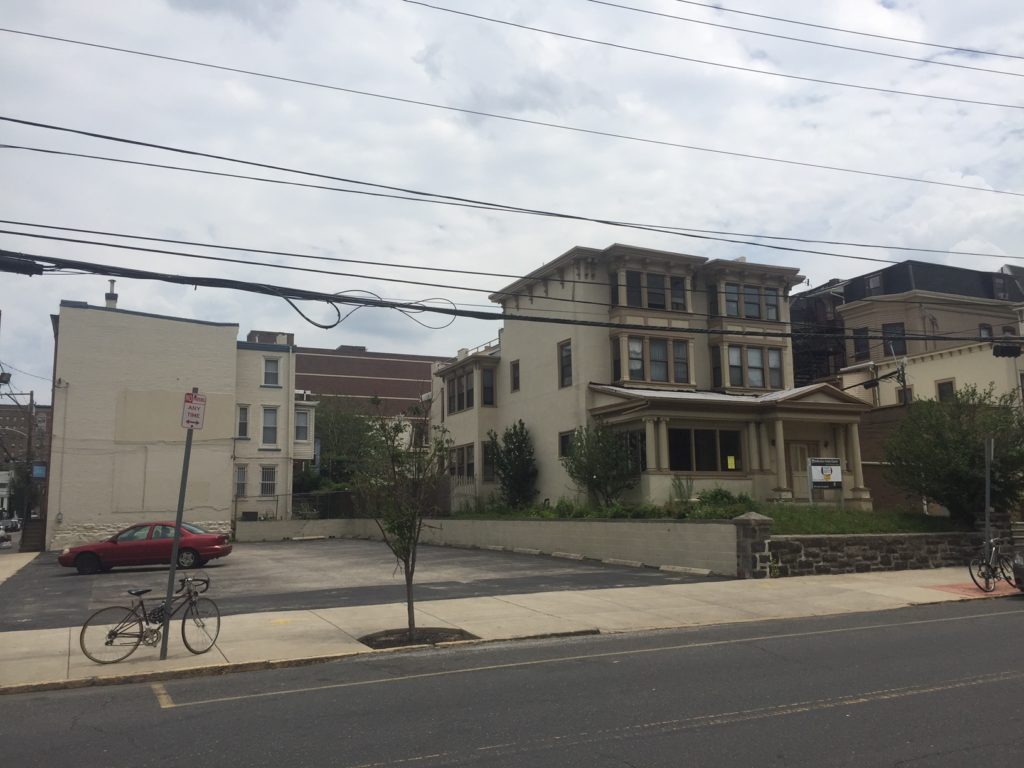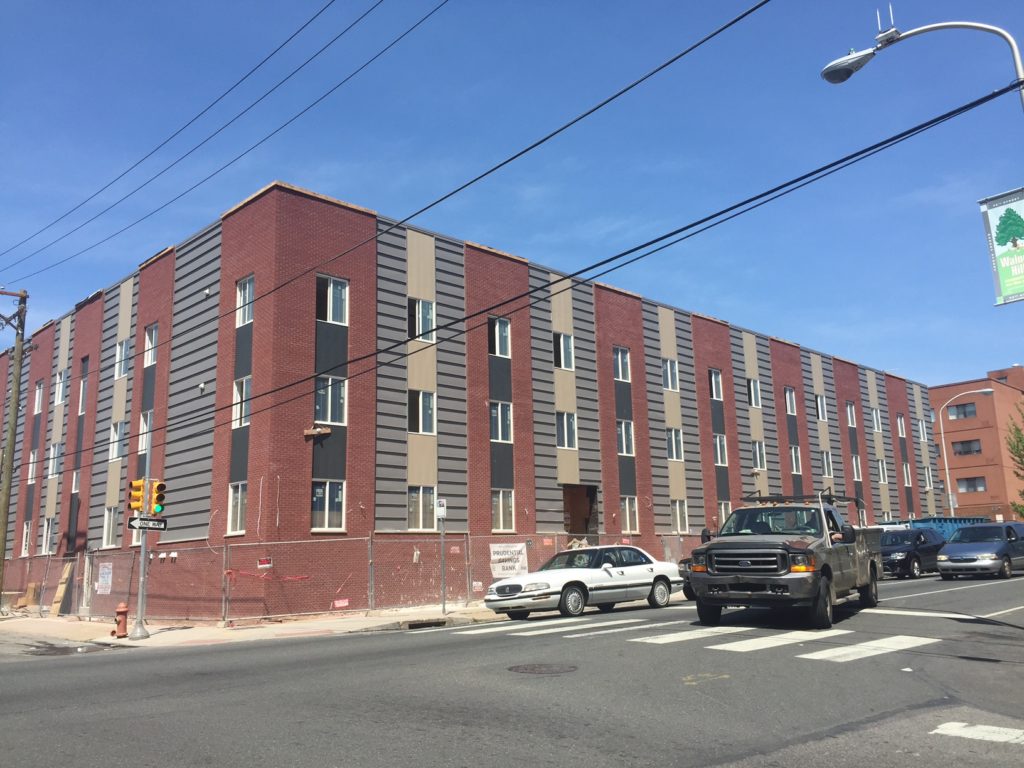A recent thread on the UrbanPHL Facebook page drew our attention to an upcoming demolition on 41st Street in West Philadelphia, and as you can guess from the name of the group, the response was rather negative. The property in question is 123 S. 41st St., a nice looking building on the edge of Penn’s campus that has most recently been home to the Unification Family Church. Somewhere along the line, the church moved out, and now their building is hurtling toward demolition.

As you can probably guess based on the location, a student housing project is planned in its place. It appears that student housing giant Campus Apartments has purchased the building, along with the vacant lot next door, and has plans for a five story building with 98 beds and 10 parking spaces. From a zoning perspective, they’re calling this a “group home,” which is a different approach than we’ve typically seen in new construction student housing. Perhaps it’s because of the location of the property, so close to campus, that the developers feel they can offer something with more of a dorm feel. In addition, they’ve surely looked at the property every which way from a financial perspective, and this is what they believe will be the most lucrative approach.

The UrbanPHL people are upset because this project will mean the demolition of an existing building that’s chock full of architectural character and if recent history is any indication, its replacement will be incredibly lacking from an architectural perspective. And we have to agree, it’s tough to swallow that the building that will ultimately rise here will pale in comparison to the building it’s replacing. That being said, we would staunchly defend the rights of the owners of this property to move forward with this project, as the building isn’t designated historic either locally or nationally. Also, it’s a by-right project to boot.
Some might decry an “ineffective” Historical Commission in this case, but is it fair to suggest that every single old and interesting building should be designated historic? In this case, a three story building and a vacant lot don’t represent the highest and best use for the location, so redevelopment actually makes a great deal of sense. We’d argue that, rather than overloading the understaffed Historical Commission by trying to protect every existing building with a demo notice, it might be more practical to fight for improved development standards. Ideally, such an approach would prevent buildings like this from getting built:

We’re all for protecting as much of the City’s architectural history as possible, but if we’re to protect its architectural future, we need to do something on the development standard side as well as keeping an eye toward historic preservation.
